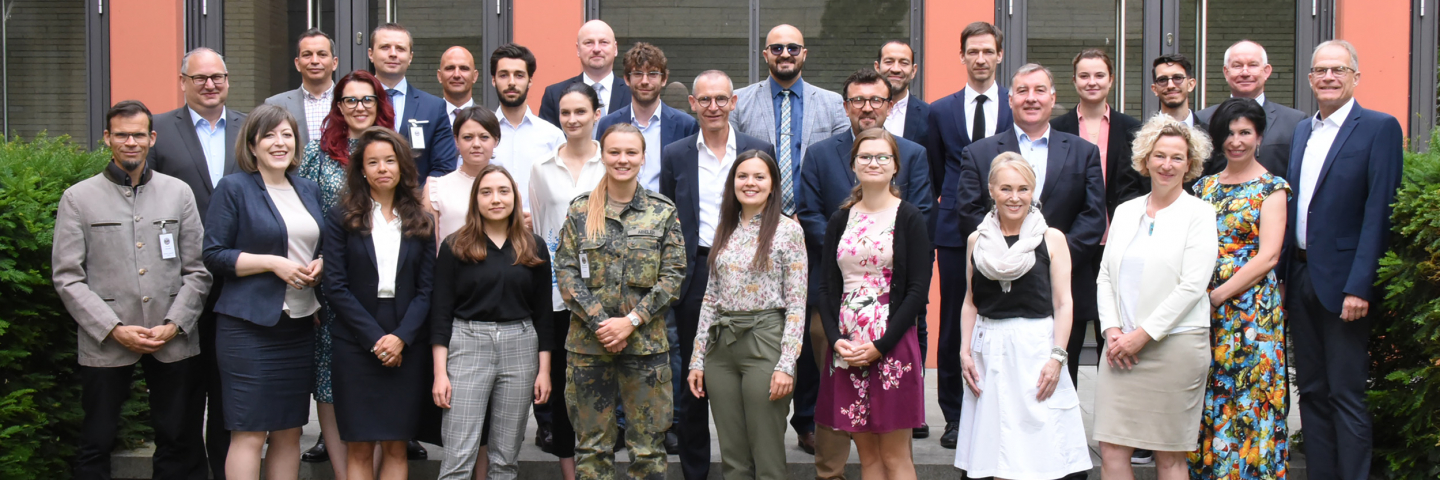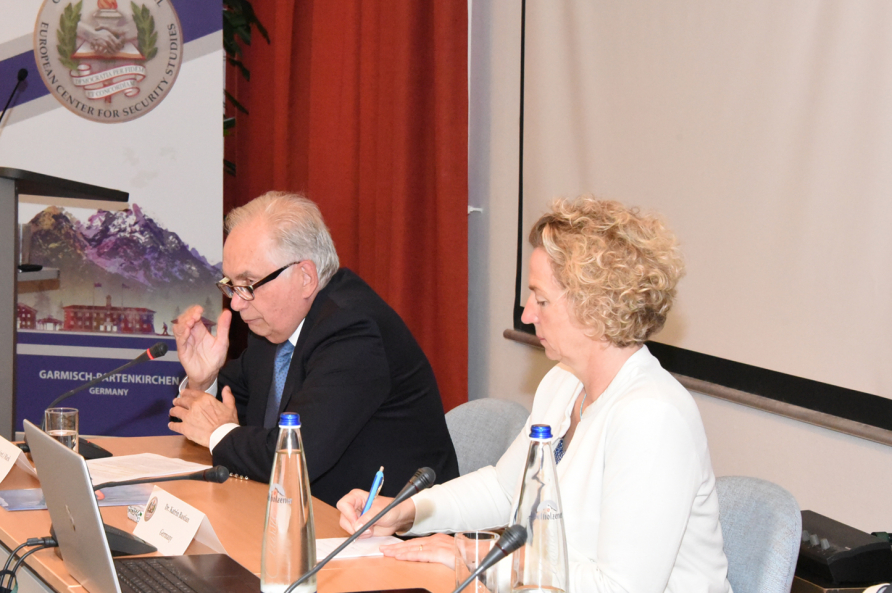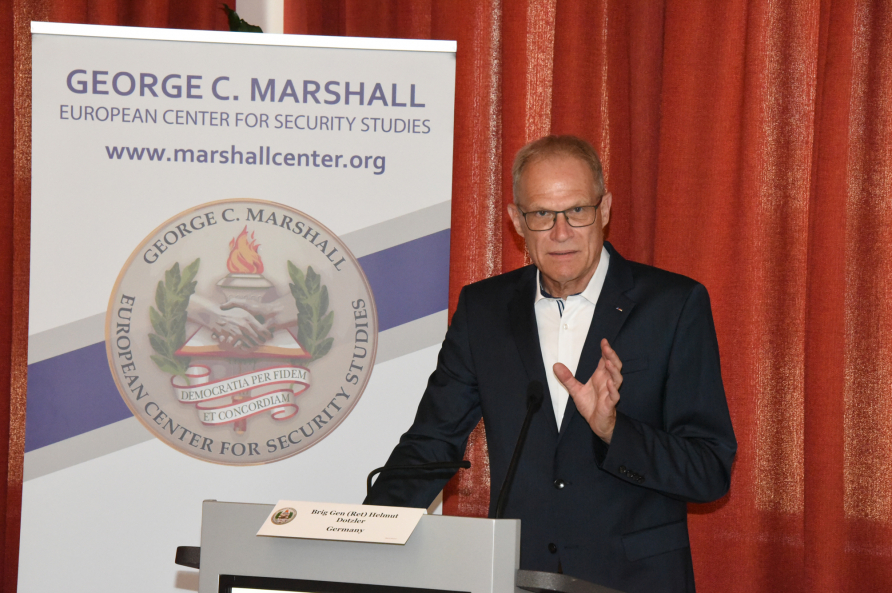
The European Security Order at a Turning Point
By Dr. Katrin Bastian
George C. Marshall European Center for Security Studies
BERLIN–The George C. Marshall European Center for Security Studies hosted a week-long workshop focused on the topic “The EU’s Ability to Act – The European Security Order at a Turning Point”, June 27-30.
The event brought together 35 Marshall Center alumni and academic experts from 20 different countries in and around the European Union to analyze and assess the European Union’s “Strategic Compass”. This document—adopted by the European Council in March 2022—was the result of a two-year-long process of threat analysis and reflections undertaken by the EU regarding its foreign, security and defense policies.
“The execution of this workshop could not be timelier. The Russian aggression against Ukraine has altered the European security order completely,” said Brig. Gen. (Ret.) Helmut Dotzler, German Deputy Director of the Marshall Center.
The participants formed three working groups on: Capability Development and Crisis Management, Partnerships, and Narratives. The goal was to stress test the Strategic Compass document in their thematic respective groups, while taking into account the current and projected challenges in the Union’s Northern, Eastern, and Southern neighborhoods.
“The threat perception of the European Union towards the Southern Neighborhood is shaped by different challenges. The assertive posture of Russia in the Mediterranean region, the spill-over effects of the war against Ukraine, and the political instability in North Africa and the Middle East are the EU’s top three concerns,” said Amb (Ret.) Marc Pierini, Visiting Scholar at Carnegie Europe and former EU diplomat.
The workshop produced several important take-aways: capabilities must be tied to ambition and dynamic realities and involve capable partnership building; capable partners must be united in democratic security and resilience building; and, considering that the EU was constructed with the aim of ending conflicts, by being accountable for the past we can be responsible for the future.
The event was well-attended and benefitted from other expert lecturers like Dr. Niklas Nováky from the Wilfried Martens Centre for European Studies and Dr. Graeme Herd from the Marshall Center.

